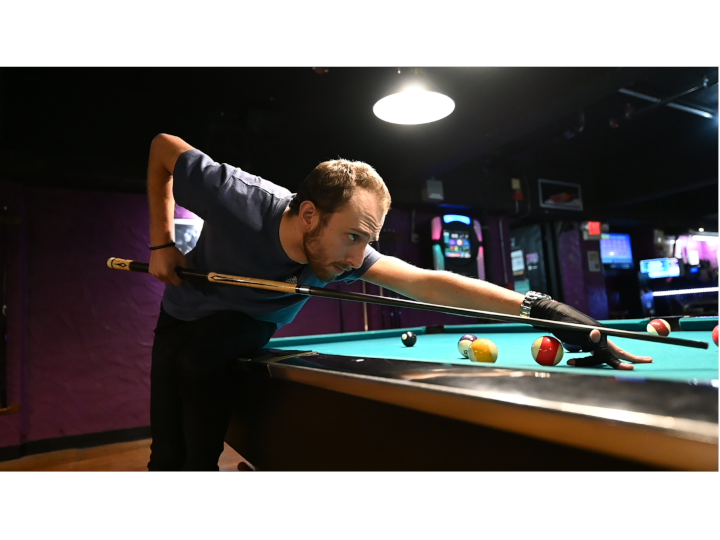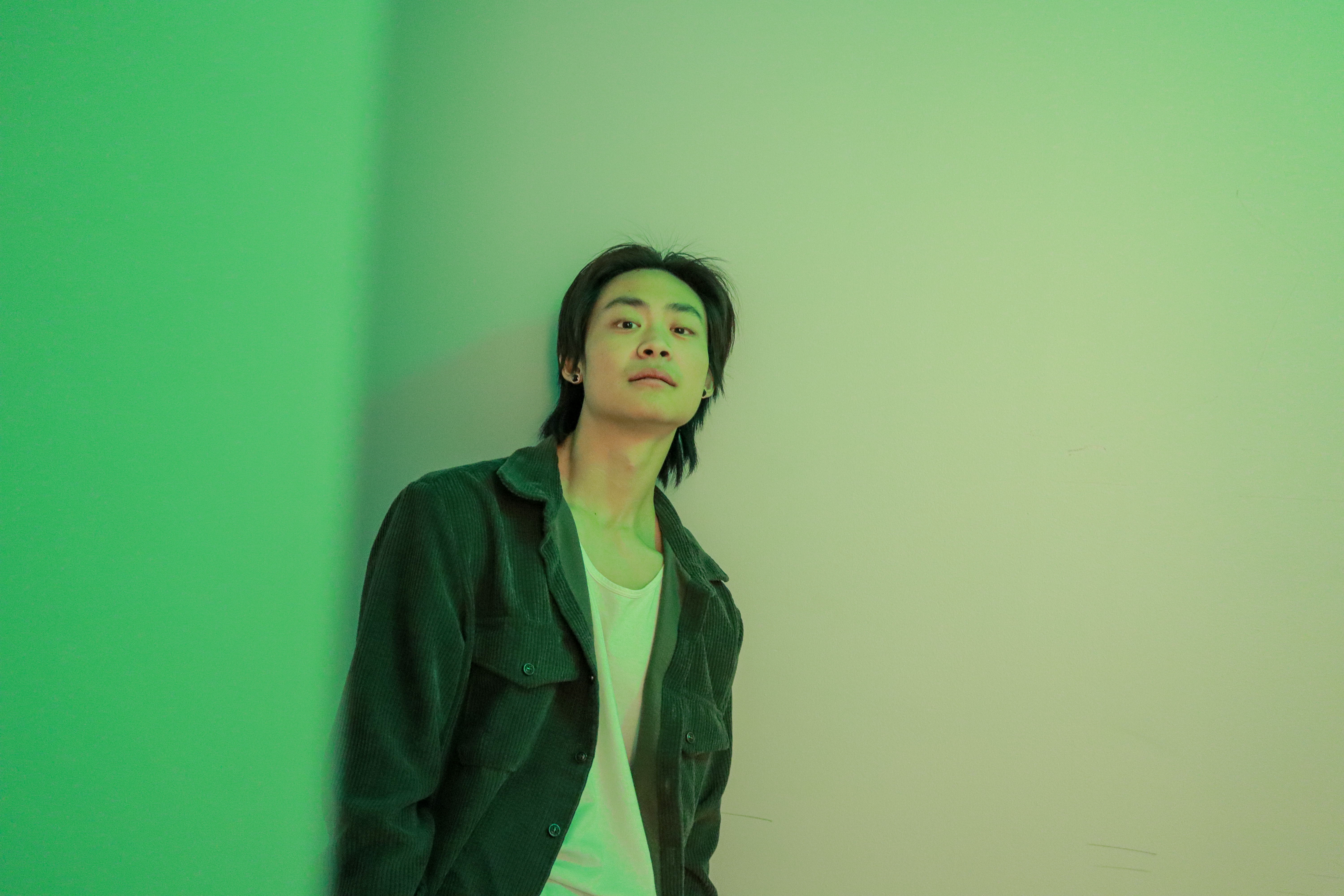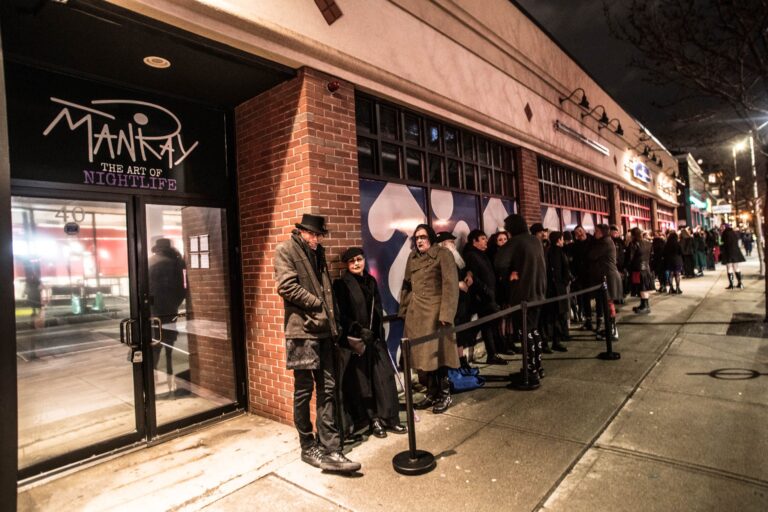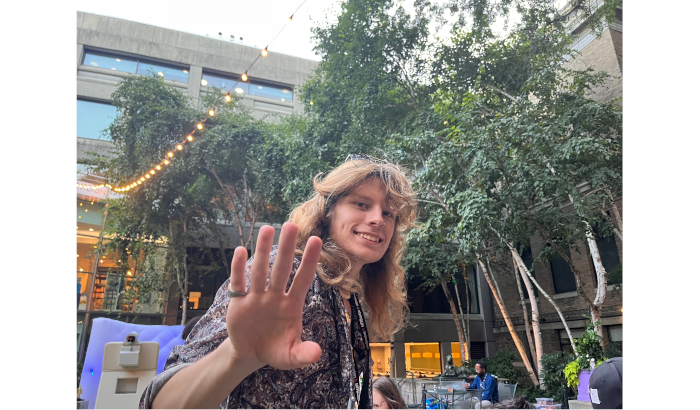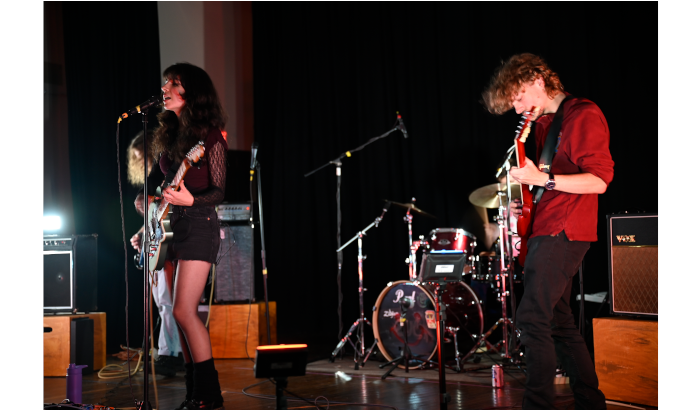Making the scene at the Pockets Billiards Club in Eastie
Straight out of a Hopper painting, Pockets Billiards Club rears its neon head over Bennington Street in East Boston. Buried under one flight of stairs is a jukebox, bar, and lottery machine—as well as one arcade-style basketball hoop, a “Big Buck Hunter” console, and other coin-operated games—which are all dwarfed by the 14 full-sized pool tables that dominate the room.
The walls are textured to look like purple frosting.
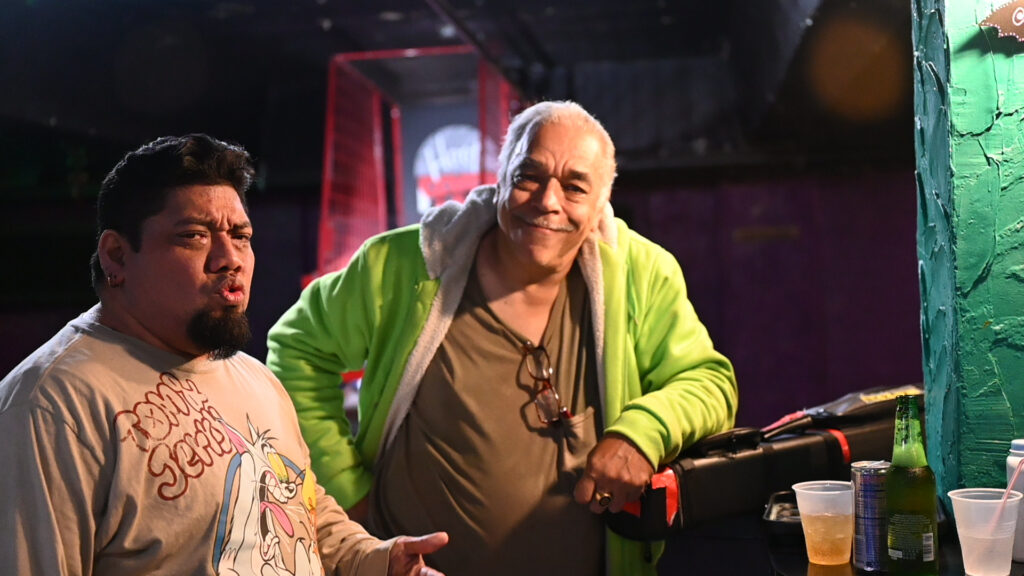
Frankie DiPrizio opens Pockets every night at 7 and closes at 2 in the morning. It’s a family business passed down from her parents, who also ran it daily. She inherited all their regular players, too, some of whom grew up with her. Still, Boston’s pool niche has been shrinking since the 90s, even before the pandemic. With halls like Flat Top Johnny’s in Brighton and Jillian’s in Fenway closing down, DiPrizio is proud to keep the scene alive in Eastie.
“I can tell that something’s up without having to ask because I see you all the time,” said DiPrizio. “If you’re a bartender or work in nightlife, you know it comes with free therapy.”

Monday nights at Pockets isn’t just home to the weekly tournament crowd, it’s a found family. Tonight, they shoot around and watch as Aidan Lees sinks a no-look shot to win the final against veteran player Danny Costello.
When Lees was 17, he began an intimacy with billiards that he never recovered from. He’s a bit of an ex-pool shark, having played with pros in Las Vegas before, he’s no stranger to playing for money, but he doesn’t keep coming back to Pockets for the Monday night $50 cash prize — he’s part of this community.
“I come here because people are nice,” said Lees. “They’re beautiful people.”
Lees made $4,000 off a single game once — which he assures is pennies compared to how anyone can flip a coin for $25,000 in Vegas. His cues, which he bought with the money he made from sharking people, are worth tens of thousands of dollars—this was when he was 20. He’s 25 now. Vegas is behind him.
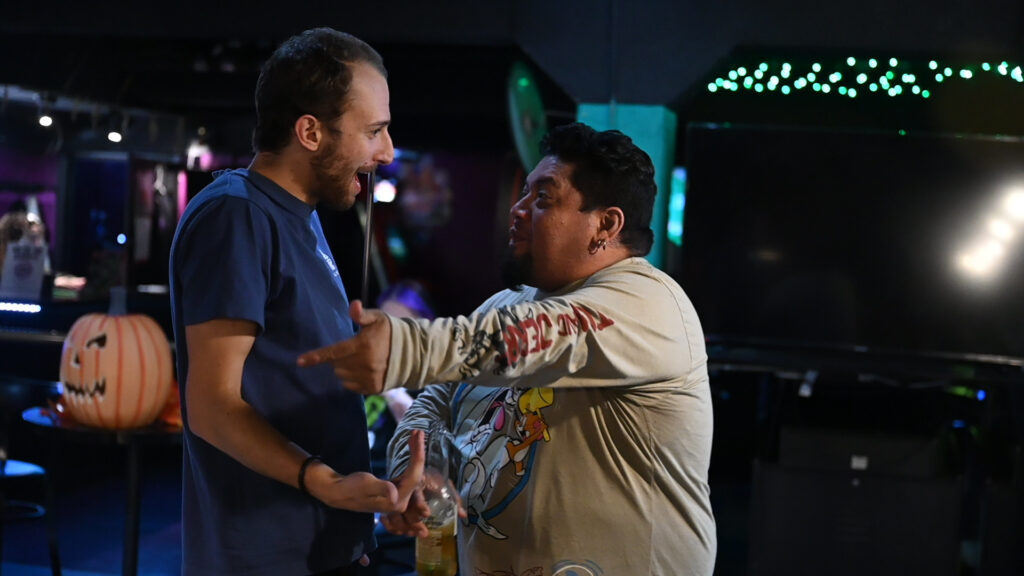
Pool sharks are hustlers, Lees explains. After asking to play for money, a shark will shoot hard enough to stay competitive but not enough to win. Eventually, after hiding their skill from their opponent, they’ll ask to go double or nothing and slowly start winning—cut to an hour later, and they’ve taken every penny.
“I can make a lot of money playing pool,” said Lees. “But it feels terrible.”
But sometimes getting “sharked” is just daylight robbery. Years ago, at a hall in Harrisburg, Pennsylvania, a shark asked to see Lees’ pool cue, after both players had already bet money on the game—which is a red flag. Still naive at the time, Lees didn’t notice his opponent sanding down his cue shaft until it was too late. He lost because of faulty equipment.
Lees started shooting in the basement of Tasty Burger in Harvard Square on a raggedy-ass pool table half made of wood (it’s still there). Everyone in the scene has their own hole-in-the-wall spot: The archetypal pool hall is always somewhere on the third floor of a Chinatown spa or tucked in a corner of a North End cafe’s basement cigar lounge. Somewhere low-key enough to be a secret and shady enough that it’s almost illegal—no matter what, they’re always packed.
Billiards isn’t always accessible to beginners—and the pool shark stereotype certainly doesn’t help. Without a friendly, local spot where people can watch, or a house with a pool table, it can be hard to break into the game as a fish just starting out. But Pockets Billiards Club is that place.
Pool is so much more than just pocketing balls—each shot has to be perfect, there’s no time limit, and the balls don’t move.
Lees admits soccer may be the most beautiful sport, but pool will always be the most beautiful game.
This article was produced for HorizonMass, the independent, student-driven, news outlet of the Boston Institute for Nonprofit Journalism, and is syndicated by BINJ’s MassWire news service.
Bryan Liu (they/them) is a HorizonMass reporter and Emerson College student from Jersey who micro-doses on pop culture one social commentary at a time. With a background in living arts, Bryan’s feature writing also explores the greater Boston area and Emersonian culture.

